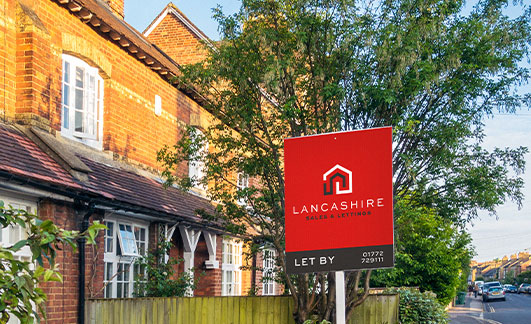References
Before commencing with the tenancy we will need to obtain satisfactory references from your employer and/or a previous or current landlord. There may also be instances when we require a personal reference or guarantor. We may also use the services of an independent referencing agency to obtain and evaluate these references. Personal & photographic identification may also be required, such as a passport or driving licence.
The Tenancy Agreement
Once the terms have been agreed by both parties and satisfactory references received, the relevant documentation will need to be signed by you and the landlord.
Tenants Administration Fee
We ask that you pay this to cover the administration costs of preparing the tenancy documentation and costs of credit reference checks. The fee is usually submitted at the time of application. Should the application fail, or is withdrawn, the cost is non refundable.
Inventory & Schedule of Condition
Before the start of the tenancy, an inventory is prepared detailing the contents and condition of the property. You will be provided with a copy and so will the landlord.
Deposit & Rent
Prior to the commencing of the tenancy, we will require a deposit and the first rental payment, a month in advance. Your deposit will be treated under the tenancy deposit protection scheme (DPS), which is a scheme accredited by the Government.
As part of the Housing Act 2004 the Government has introduced tenancy deposit protection for all assured shorthold tenancies (ASTs) in England and Wales where a deposit is taken. From April 6th 2007, all deposits paid under an AST have had to be protected within 30 calendar days of receipt by the agent/landlord.
How the DPS Scheme works?
- The tenant pays the landlord or letting agent their deposit.
- The letting agent/landlord pays the money in to the DPS scheme within 30 days of receiving it.
- Upon receipt of the deposit, the DPS provides confirmation and details of the protection scheme to the letting agent/landlord and tenant.
- When the tenancy comes to an end, the letting agent/landlord and tenant agree repayment of the deposit including any interest accrued, usually within 10 days.
- In the case of any dispute, The DPS return any undisputed monies plus interest to the relevant party, but hold the disputed portion until the Alternative Dispute Resolution Service (ADR) or courts decide what is fair.
Your deposit cannot be used to pay your rent.
When can I move in?
Once the tenancy has been signed and rents & deposits have cleared, the tenancy can proceed. You can now collect the keys to your new home.
Can I have pets in my new home?
You must consult us prior to obtaining a pet.
What if I find any faults or repairs that need addressing?
If you find any problems with the property you are renting, you should contact us immediately. Once we have been informed of any issues/faults we will instruct the landlord and await their instruction.
Can I decorate the property?
You must consult us prior to carrying out any changes to the property. We will contact the landlord and await his permission.
Do I have to pay for Council Tax & Utility Bills?
As a tenant you will be responsible for any utility bills like water, gas, electric as well as council tax, unless there is a special arrangement with the landlord of the property. You will also be responsible for a TV license at the property, if you watch TV without a license you risk being fined. Please check the tenancy agreement details.
Do I need insurance, as a tenant?
The landlord of the property is responsible for insuring the building and any furnishings that come with it. You will be responsible for insuring your own contents/personal possessions stored within the rented property.
Can I run a business from the property I rent?
No. You must use the property solely for residential purposes unless specifically agreed in advance, in writing.
As a tenant, what am I responsible for?
As a tenant, you are responsible for:
- Prompt payment of the rent
- Prompt payment of gas, telephone, electricity, council tax
- Reporting any damages to the property or furnishings within the property as soon as possible
- Taking general good care of the property
- Respect the needs of your neighbours







